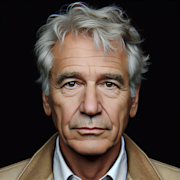La Dolce Vita (1960)

La Dolce Vita is a classic Italian film directed by the legendary Federico Fellini. Released in 1960, the film is a satirical take on the glamorous and hedonistic lifestyle of the Roman elite during the 1960s. With its provocative themes, stunning cinematography, and iconic performances, La Dolce Vita has stood the test of time and remains a masterpiece of world cinema.
The Plot
The film follows Marcello Rubini, a journalist living in Rome, as he navigates the city’s high society and nightlife. Marcello is torn between his ambitions as a writer and his desire for fame and wealth. As he mingles with celebrities, socialites, and other members of the elite, Marcello grapples with themes of decadence, disillusionment, and existential angst.
Throughout the film, Marcello is accompanied by a cast of colorful characters, including his on-again, off-again love interest, Emma, played by Anouk Aimée, and Steiner, a wealthy intellectual grappling with his own existential crisis. The episodic structure of the film allows Fellini to explore different facets of Roman society, from the glamorous parties and extravagant lifestyles to the seedy underbelly of the city.
Surrealism and Symbolism
One of the defining characteristics of La Dolce Vita is its use of surrealism and symbolism. Fellini employs dreamlike sequences and fantastical imagery to blur the lines between reality and illusion. This is most notably seen in the film’s iconic scene featuring a giant statue of Jesus Christ being airlifted over Rome, a powerful symbol of the clash between spirituality and materialism.
The film is also filled with recurring motifs and symbols, such as the motif of water, which represents purification and rebirth. Water is a constant presence in the film, whether in the form of fountains, oceans, or rain, serving as a metaphor for Marcello’s search for meaning and redemption in the midst of chaos and decadence.
Cinematography and Design
La Dolce Vita is a visual masterpiece, with stunning cinematography and production design that capture the beauty and decadence of Rome in the 1960s. The film’s iconic black-and-white cinematography, shot by cinematographer Otello Martelli, creates a timeless and evocative quality that enhances the film’s themes of nostalgia and disillusionment.
Fellini’s meticulous attention to detail is evident in every frame of the film, from the lavish parties and glamorous costumes to the seedy alleyways and crumbling buildings. The film’s visual style is a perfect reflection of the contrasting worlds of wealth and poverty, glamour and decay, that Marcello navigates throughout the film.
Legacy and Influence
La Dolce Vita remains a touchstone of world cinema and has had a lasting impact on filmmakers and audiences around the world. The film’s exploration of fame, wealth, and existential angst has resonated with generations of viewers, cementing its status as a classic of Italian cinema.
Fellini’s bold and innovative storytelling style, combined with the film’s iconic imagery and memorable characters, has solidified La Dolce Vita’s place in the pantheon of great films. Its influence can be seen in the works of contemporary filmmakers such as Sofia Coppola and Pedro Almodóvar, who have drawn inspiration from Fellini’s unique vision and storytelling techniques.
In conclusion, La Dolce Vita is a timeless masterpiece that continues to captivate and inspire audiences over six decades after its release. With its provocative themes, stunning cinematography, and unforgettable performances, the film remains a testament to Fellini’s genius and artistry. If you haven’t already experienced the magic of La Dolce Vita, do yourself a favor and embark on a cinematic journey through the streets of Rome with Marcello Rubini.

Desmond van der Walt
Journalist
More From Classics Authority Movies

Movie
Touch of Evil (1958)

Movie
The Rise of Method Acting: Brando, Dean, and the Revolution in Classic Cinema

Movie
Tragedy and Triumph: Classic Films That Explored the Human Experience

Movie
The Lord of the Rings: The Fellowship of the Ring (2001)

Movie
Airplane! (1980)

Movie
The Cinematic Evolution of Makeup: Transformative Techniques in Classic Films





